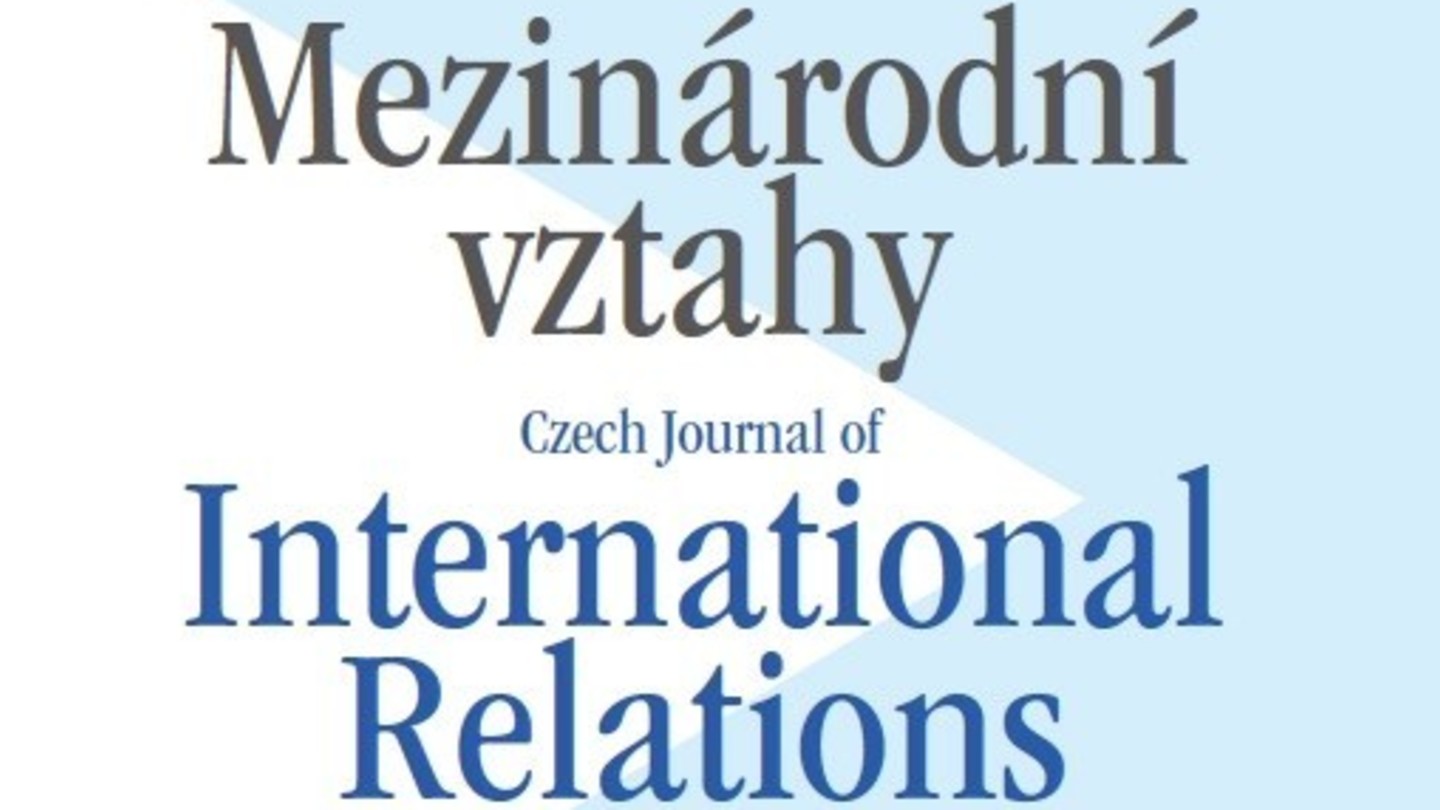Czech Journal of International Relations Vol 54, No 4 is out

Dear readers, a new issue of the Czech Journal of International Relations is out. The three peer-reviewed articles of this issue focus on highly relevant matters of international security: indirect interventions in civil wars, European defence cooperation, and the Women, Peace, and Security agenda. The issue also features seven reviews on recently published titles.
The Czech Journal of International Relations, Vol 54, No 4, brings 3 expert articles and 7 book reviews.
The first research article, Indirect Interventions in Civil Wars: The Use of States as Proxies in Military Interventions, is written by Kamil Klosek. He uses the logic of principal-agent theory to examine the phenomenon of indirect interventions, and presents a new perspective on how great powers harness weaker states to militarily intervene on their behalf. The analysis brings two brief case studies of the Moroccan intervention in Zaire (1977) and the Ugandan intervention in the Central African Republic (2009).
The second research article Making Europe Defend Again: The Relaunch of European Defense Cooperation from a Neoclassical Realist Perspective is written by Michael Baun and Dan Marek, and examines the relaunch of European defense cooperation since 2016. Authors argue that while Europe’s changing security environment has created incentives for increased defense cooperation, to explain its form and content we must first understand the preferences of key actors, France and Germany. The article focuses on the new forms of European defense cooperation: PESCO and the E21.
The third peer-reviewed piece in this issue is a review article, written by Míla O’Sullivan and titled The Women, Peace and Security Agenda: The Unfinished Story of Feminist Revolution versus Compromise in Global Politics. She explores the central question of the scholarly debate on the Women, Peace and Security (WPS) agenda – whether to strive for revolution or co-optation of the international peace and security governance. Her article shows that while the revolutionary vision of peace has been compromised in the WPS normative framework and the implementation has taken largely pragmatist approach, it is precisely the revolutionary voices which can push the agenda forward.
The new book reviews in this issue are:
Jakub Eberle: Discourse and Affect in Foreign Policy. Germany and the Iraq War (review written by Zuzana Buroňová)
Hilary Appel and Mitchell A. Orenstein: From Triumph to Crisis: Neoliberal Economic Reform in Postcommunist Countries (review written by Da Yeun Lee)
Ioannis Armakolas and James Ker-Lindsay (eds.): The Politics of Recognition and Engagement: EU Member State Relations with Kosovo (review written by Jolyon Naegele)
Rosemary Kellison: Expanding Responsibility for the Just War: A Feminist Critique (review written by Mirek Tobiáš Hošman)
Tony Karbo and Kudrat Virk (eds.): The Palgrave Handbook of Peacebuilding in Africa (review written by Mira Abrahamyan)
Dambisa Moyo: Edge of Chaos: Why Democracy Is Failing to Deliver Economic Growth – and How to Fix It (review written by José de Arimatéia da Cruz)
Anthony Burke and Rita Parker (eds.): Global Insecurity: Futures of Global Chaos and Governance (review written by Michaela Zemanová)